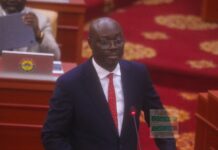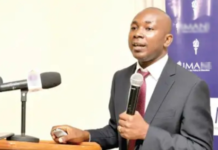
The Chief Executive of the Food and Drugs Authority, Delese Mimi Darko, says tax policies on products like tobacco and alcohol, with negative public health consequences, are beneficial.
“The taxes advance health equity, prevent disease, save lives, and generate revenue for the general budget. These funds can also support Universal Health Coverage,” she stated.
Madam Darko remarked at the first National Forum on Tobacco Taxation on the theme: “Strengthening the Evidence for Effective Tobacco Taxation for Health and Development in Ghana.”
It was organised by the Vision for Alternative Development – Ghana (VALD-Ghana) in Accra.
The forum was aimed at seeking feasible recommendations through which Ghana’s tobacco taxation could be comprehensively aligned with global standards, particularly those outlined by the WHO Framework Convention on Tobacco Control (WHO FCTC).
The goal was to address the social, health, environmental and economic impact of tobacco use.
Madam Darko said the passage of the Excise Duty Amendment Act, 2023 (Act 1096), marked a significant milestone in tobacco control in Ghana, transitioning from an ad-valorem tax structure to a mixed tax structure.
“Raising taxes on tobacco products increases their price, making them less affordable and preventing youth initiation,” she noted, adding that; “Article ‘6’ of the WHO FCTC encourages countries to implement price and tax measures, and Ghana is dedicated to this effort,” she said.
She said tackling tobacco use globally was a priority within the 2030 Agenda for Sustainable Development, and that controlling the product was crucial for achieving the Sustainable Development Goals (SDGs), particularly SDG Target 3.4.
The target aims to reduce premature mortality from non-communicable diseases (NCDs) by one-third by 2030, while Target ‘3.a’ supports the objective by calling for the strengthening of the implementation of the WHO FCTC.
The Chief Executive stated: “Beyond health, tobacco control reduces poverty and inequalities, strengthens the economy, and promotes sustainable development.”
Madam Darko said the FDA was committed to fully supporting the continuous implementation of the Excise Duty Amendment Act, 2023 (Act 1096) to reduce tobacco use and save lives in Ghana.
The Deputy Commissioner of the Ghana Revenue Authority, Dr Charles Addai, said the Authority was implementing all the excise taxes, which were called “sin taxes” to raise revenue and help reduce the consumption of harmful products.
He said one of the major laws being used by the GRA was the Excise Duty (Amendment) Act 2023 (Act 1108).
“The objective of the Act is to raise revenue, mitigate the harmful effect of excisable products, and conform to ECOWAS protocol; and the major changes in the Act were; an increase in the tax rates, introduced e-cigarettes, and introduced mixed excise tax regime (specific and ad-valorem,” he stated.
READ ALSO:

![You’ve abolished only 2 taxes, not 6 – Oppong Nkrumah to gov’t [Watch]](https://www.adomonline.com/wp-content/uploads/2025/03/IMG_7047-218x150.jpg)

![2025 budget: I expect the removal of all promised taxes – Miracles Aboagye [Watch]](https://www.adomonline.com/wp-content/uploads/2024/07/IMG_9528-218x150.jpg)


